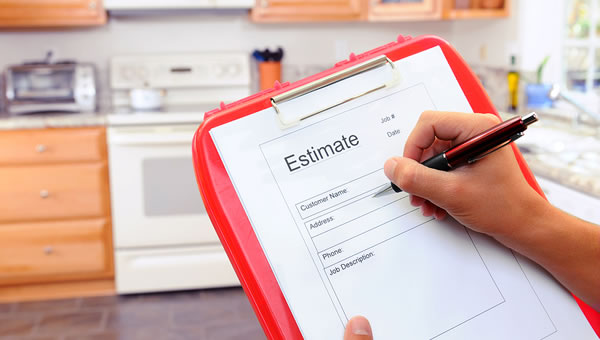Home improvement scams are most frequently put into operation through door-to-door contact with homeowners. Legitimate, home repair contractors reach potential customers through advertising or phone solicitation.
- Be wary of any salesperson that comes to the door, and puts pressure on you to pay up front, or take the deal on painting or paving right now. These are common homeowner scams and tactics.
- Do not pay upfront money to a contractor. Various state laws prohibit contractors from this kind of business transaction. A contractor must provide a service in order to receive consideration (payment).
- Coming to your home to give an estimate or even entering into a contract with a homeowner, is not providing a service.
Once work has started and/or materials have been received, that is when a contractor has provided a service that constitutes a payment from the homeowner. And that payment should not exceed the percentage of the contract price that the work performed and/or materials received to account for.

A contractor should establish a schedule of values for every project that listing the value of each activity of the project, and the homeowners’ payment is made for the percent complete for each activity on a weekly, bi-weekly or monthly bases, depending on the particular project. If a contractor is asking for upfront money, this is an indication of:
a. Inadequately trained management
b. Bad company business ethics
c. Lack of company working capital
d. History of low quality workmanship that has resulted in homeowner non-payment
e. A money scam that the homeowner will not be able to recover.
Resist being pressured into signing a contract with a contractor on their first visit. This is a tactic used by some contractors to keep homeowners from comparing them to another contractor and researching their history.
A quality contractor will be willing to make as many visits as necessary to assist a homeowner in their decision. Your home is the single largest investment you will ever make and a quality contractor will want you to be satisfied with the improvements they will be performing.
Con artists frequently zero in on low-income people and seniors. They think these people are especially susceptible to high-pressure tactics. These con artists are persuasive about unneeded or overpriced home improvement scams.
If a contract is signed, the homeowner may land in more trouble with a collaborating financial institution for refusing to pay for slipshod or unfinished work.

Law enforcement agencies and consumer groups are well aware of organized American Gypsies or Travelers. These are most likely the door-to-door salespeople for home repair scams that homeowners encounter.
These Travelers are organized, have new trucks and equipment within or out-of-state license plates, and, if asked, provide in or out-of-state phone numbers and addresses.
Some of these groups have burglarized the homes of distracted owners, or have offered to drive an owner to the bank so the owner can remove money from an account.
So how do you select a contractor without being scammed?
Your first resource for a recommendation should be family, friends, and neighbors who have had similar work done for them. A local flooring distributor or home improvement warehouse can also help you locate reputable contractors.
During the first meeting, it is a good idea to ask the contractor for other references you can contact. If they do not have any references, it would be a good idea to find a different contractor.
Another good place to locate a reputable home improvement or flooring contractor would be the manufacturer’s website or a distribution center. Manufacturers usually have strict rules for the contractors they recommend.
Plus, contractors listed on the manufacturer’s website or recommended through a distribution center will usually take more care in their business dealings because they are subject to lose more than just a customer, they could lose their backing from the manufacturer if they do not fly straight.
The relationship you have with your contractor is an important one. You will want one who is qualified, capable and trustworthy. Here is a summary of suggestions:
- Just ask. Word-of-mouth is the best advertising. Ask friends, neighbors and relatives. If there is a home you like with improvements similar to what you want in your neighborhood, ask the owners who did the work. Your local distributor will also have suggestions. Follow up on the leads they give you.
- Take a look. Ask the flooring installer or contractor for before and after photos of their jobs. Ask for addresses of projects they have done in your area.
- Get references. Before signing a contract, get the names of 3 or 4 of the contractor’s customers. Call and get their input. Also, ask the contractor about awards or endorsements they may have received.
- Check with the Better Business Bureau. If you have any concerns, call your local BBB. They will be able to tell you if any consumer complaints are on record.
